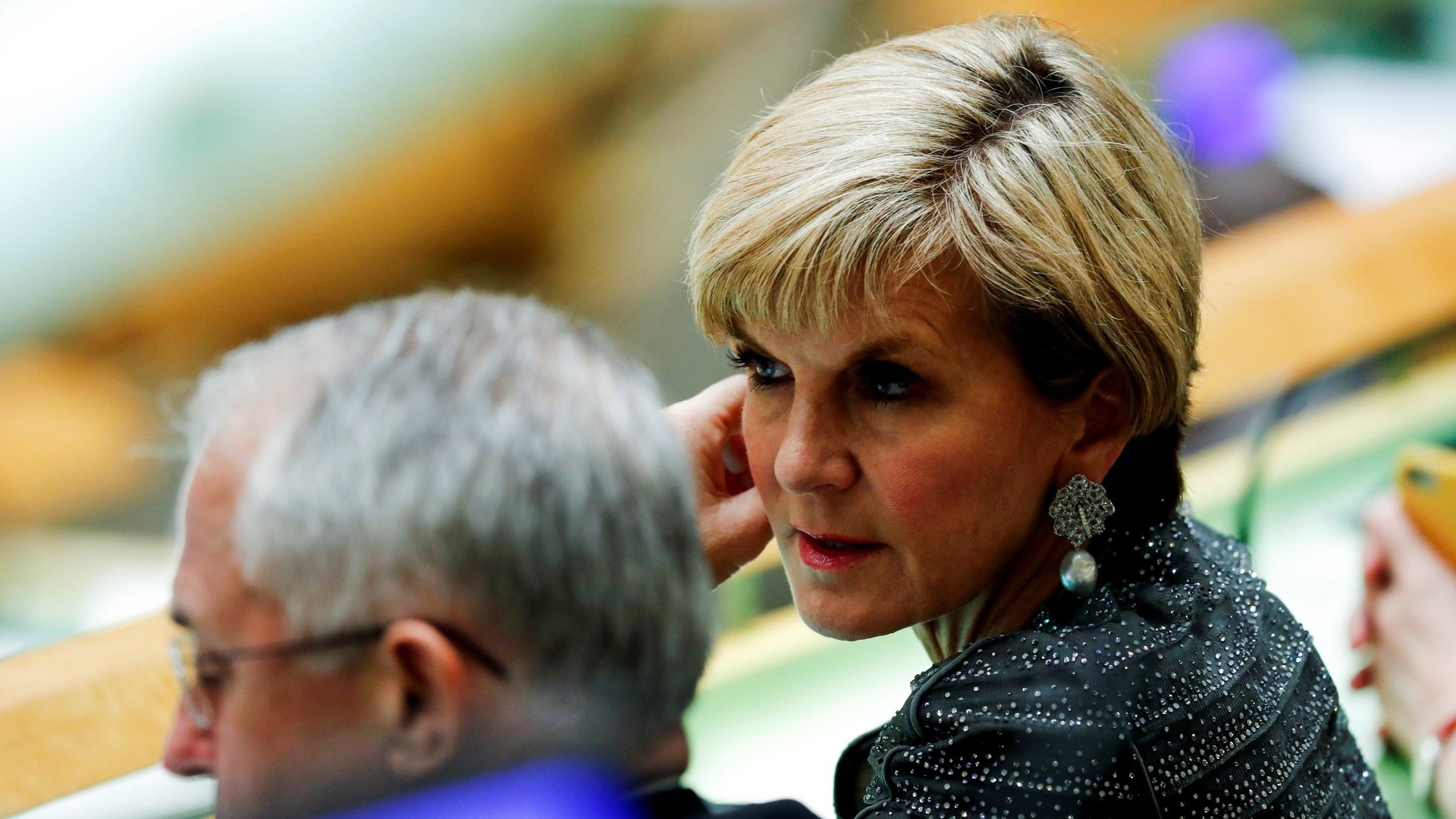Even right-wing Australians—and especially the foreign minister—are nervous about a Trump presidency
In late May, Australian prime minister Malcolm Turnbull rebuked opposition leader Bill Shorten—who heads the center-left Labor Party—for describing Donald Trump’s views as “barking mad” in a radio interview. Turnbull had a point, of course. A certain level of diplomatic decorum is required of high-ranking public servants, especially from “prime ministerial aspirants” like Shorten.


In late May, Australian prime minister Malcolm Turnbull rebuked opposition leader Bill Shorten—who heads the center-left Labor Party—for describing Donald Trump’s views as “barking mad” in a radio interview. Turnbull had a point, of course. A certain level of diplomatic decorum is required of high-ranking public servants, especially from “prime ministerial aspirants” like Shorten.
But recently a high-ranking member of Turnbull’s own right-wing party (confusingly called the “Liberal Party”), foreign minister Julie Bishop, hinted in an interview with the Australian Broadcasting Corporation that she would prefer Hillary Clinton—and had reservations about Trump.
At first, Bishop stayed diplomatic during the Oct. 30 interview. Asked if Australians should “feel uncomfortable” about the prospect of a Trump presidency, she said it was “a matter for the American people to decide” and “Australia must work with whomever the American people choose as their president.”
But pressed further by interviewer Barrie Cassidy, Bishop revealed her true feelings:
“I have met Hillary Clinton on a number of occasions… She appears to be very pragmatic. She is very smart, intelligent, quite charming to deal with one-on-one and has an understanding of Australia and our place in the world and also has a deep understanding of the alliance… I believe there will be continuity in foreign policy from the Obama administration should it be a Clinton administration. She sees the US as having a global leadership role. Candidate Donald Trump does not. He sees the US as having got a raw deal from globalization and he would focus more on domestic matters… It will be up to our region, including Australia, to persuade a Trump administration to focus on the Asia-Pacific.”
Bishop’s party would seem to be a natural ally with the Republican party that Trump, to the embarrassment of many US conservatives, represents this US election. After all, the Liberal Party emphasizes small government, free markets, and individual liberties. Turnbull even proposed a law on Oct. 30 banning any refugees arriving by boat from entering the country, ever, even for tourism or business, a hard line that Trump supporters might appreciate.
But Bishop isn’t alone. Earlier this year a survey of more than 100,000 Australians found that 70% believed their nation should distance itself from the US if Trump were elected. Only 24% believed the relationship between the two nations should remain unchanged. But if Clinton were elected, 87% believe the relationship should remain unchanged or be strengthened.
As for Shorten, he said in his defense, “If you think someone who says Mexicans are killers and rapists, if you think that I can’t have an opinion about someone who says about John McCain, yes he is a war hero, but Mr. Trump prefers war heroes who aren’t captured. Really!”
Shorten noted that former prime minister John Howard, a member of Turnbull’s own party, also had doubts about Trump. “I tremble at the thought of Trump being president,” the conservative Howard said in February. “There’s an instability about him that bothers me.”